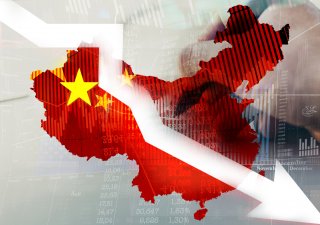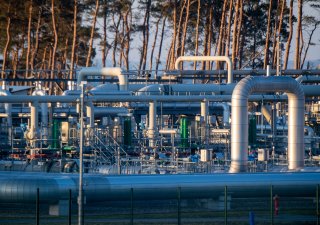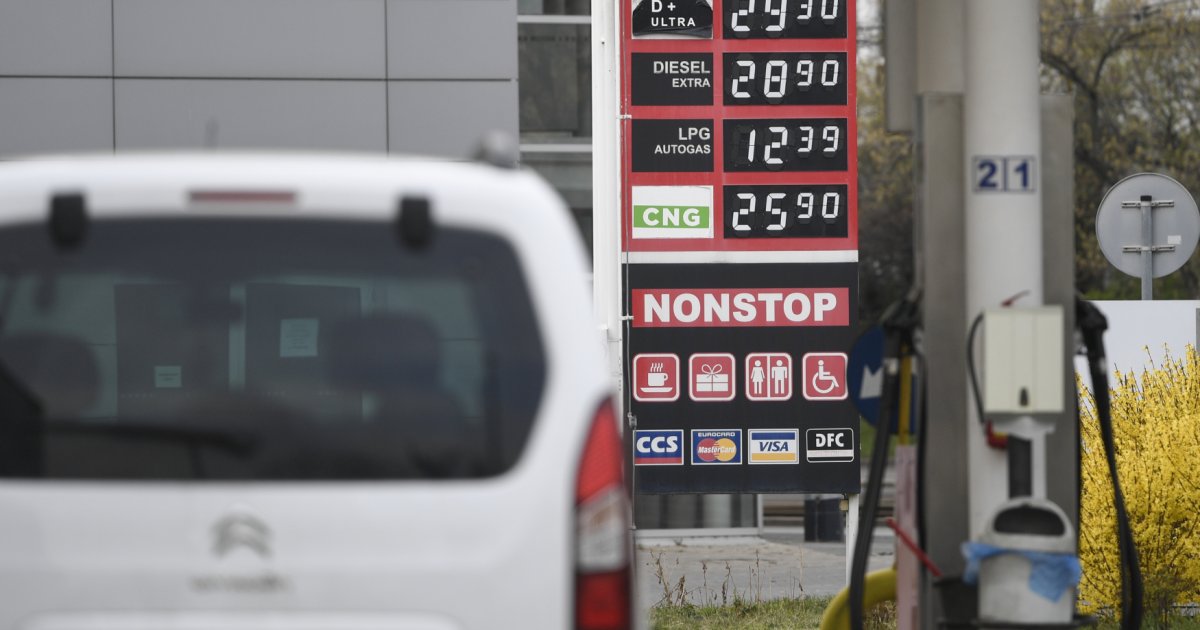Gasoline has risen in price in the last five days by more than how much excise tax has been reduced since June.
The price of petrol at Czech filling stations rose from Monday to Friday this week by 1.53 crowns per liter. Yesterday, Natural 95 petrol sold for an average of CZK 45.88 / l, the most expensive since mid-March. Throughout the history of the Czech Republic, gasoline has been sold more expensive than yesterday in just six days, just before mid-March this year, when its price was driven to historical records by the panic situation caused by the Russian invasion of Ukraine and related sanctions.
Last Sunday, petrol averaged CZK 44.35 / l. The pace of rising petrol prices is therefore extraordinary. From 1 June, a four-month reduction in excise duty on fuel by CZK 1.50 / l will apply. However, in the end, drivers may not feel it at all. Precisely because the extent of the tax reduction does not differ much, as we now see, from the extent of the several-day movement of the market price of fuel.
Russian gas stopped flowing to Finland. It will be replaced by supplies from Estonia
The Russian gas company Gazprom stopped gas exports to Finland in the morning. This was announced by the Finnish operator Gasgrid.
Excise tax cuts cost the government a billion
In addition, gas stations do not pass tax cuts in full. The measure will cost the Czech state a billion crowns a month, while it is quite likely that the price of fuel will be higher in June, ie after the tax reduction, than now. This will cause frustration for many motorists. An extra step with gusto attacks the opposition.
The key embargo on EU imports from Russia is the key upward pressure on oil prices. The embargo would increase the price of oil on world markets, and thus also fuel in the Czech Republic. Brussels has not yet succeeded in enforcing the embargo, as Hungary opposes it. Orbán’s position is the last obstacle to its implementation. EU leaders will meet at a joint summit at the end of May. They will thus have the opportunity to push Hungary and force it to lift the embargo. If this were to happen, for example in the context of some political trade between Brussels and Budapest, the world’s oil price would rise immediately. And gradually they will also increase the price of fuels in the Czech Republic, ie in the first days of June. At a time when the excise tax is being reduced, fuels in the Czech Republic may still become more expensive due to Orbán’s swaying of the embargo, and quite significantly.

China is hampered by the covid. It will probably not be the first in growth, after 45 years it will be defeated by the USA
Restrictions on movement in China due to the covid pandemic are likely to mean that the growth rate of the Chinese economy will be lower than the growth rate of the United States economy for the first time since 1976, Bloomberg reported. According to its economists, the world’s second largest economy will grow by only two percent this year, while the US gross domestic product is expected to increase by 2.8 percent this year.
Diesel is not as expensive as gasoline
Remarkably, diesel has not become as expensive as gasoline lately. While in the last five days it has risen by 1.53 crowns per liter, diesel has fallen by one penny per liter. This development is unusual. The shortfall in fuel supplies, linked to the war in Ukraine and Western sanctions against Russia, is now more acute in Europe in terms of petrol supply.
Overall, rising oil prices on world markets and a marked weakening of the koruna against the dollar in which oil and trading also contribute to the upward pressure on fuel prices. Rising oil prices in the world support the improvement of the pandemic situation in China, where it is restoring demand for oil products. In the next seven days, further increases in fuel prices, especially petrol, are to be expected. The increase should be in the range of 50 pennies per liter of petrol and ten pennies per liter in the case of diesel.
Union: The energy crisis can ultimately only strengthen Europe
According to the Confederation of Industry and Transport of the Czech Republic (SP), the current energy crisis could, like the previous crisis periods, shift European integration and strengthen Europe. However, no crisis should completely disrupt functioning systems, said Radek Špicar, the union’s vice president. He also presented the three pillars for the Czech presidency of the Council of the European Union, which will begin in six weeks.

Gas prices on the Dutch stock exchange fell to pre-war levels
Natural gas prices in Europe have fallen, thanks to growing commodity stocks and stable supplies from Russia. In addition, the risk posed by Moscow’s new payment rules is weakening. The benchmark Dutch futures for next month are heading for a weekly loss of about seven percent. On Thursday, after the closure of the Dutch commodity exchange, prices fell to their lowest level since February 23, the day before Russia invaded Ukraine, Bloomberg reported.
–

